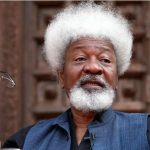When the International Monetary Fund, IMF, categorises resource-rich countries, it classifies the countries according to their export baskets. At least 20 African countries, including Nigeria, Angola, Ghana, and Tanzania, are classified as resource-rich, with their export bases comprising a bulk of unprocessed crude oil, minerals and agricultural commodities.
The classification of countries in other continents, such as Japan, Malaysia, and Indonesia, is based on the diversity of their export bases and value-added products.
Since 1973, the year of the first oil boom, crude oil has constituted more than 90% of Nigeria’s export earnings, making Nigeria a global classic case of a monocultural economy. Though a monocultural economy has the advantage of product specialisation, it runs contrary to the spirit of Section 16 of the 1999 Constitution in building a balanced and resilient economy.
It is up to the incoming president to provide coordinated and collaborative leadership in compliance with the constitutional requirement for the three tiers of government in Nigeria to identify, harness, and coordinate economic policies that leverage on their comparative economic advantages, in producing at least one quality good or service per state, at a lower opportunity cost than other states, regions or countries.
To transition and transform Nigeria’s economy beyond oil, subsistence farming and informal activities as the core drivers of the economy, the President must be intentional in pursuing devolution of power to ensure that state governments have the necessary energy baseload for industrialisation, power and capacity to generate and transmit electricity to industries within their states.
There also needs to be a renewed focus on reviving the steel sector; investing heavily in education, and importantly, creating an enabling business environment for industries to thrive, through efficient implementation of ease of doing business policies in Nigeria.
With changing landscapes in geopolitics, achieving a diversified economy that transitions away from dirtier fuels like diesel, kerosene and petrol, is in the best interest of the country.
At the peak of the COVID-19 global pandemic in 2020, Nigeria was stuck with unwanted cargoes of crude oil and liquefied natural gas, LNG, and oil prices fell to an all-time low, trading at minus $37.63, although Nigeria’s Bonny Light crude was trading at $12, the nation’s biggest trading partners eschewed oil in favor of more epidemic-related spending.
When countries opened up their cities, it was easier for most diversified economies to bounce back from the effect of COVID-19 than monocultural economies that rely mainly on oil.
With the global green revolution predicated on the proposal that economic growth no longer requires higher carbon emissions, Nigeria must now creatively explore our comparative economic advantages, leveraging on our over 45 mineral resources such as lithium, which in the next decade will account for 94 per cent of tech batteries made globally and is currently valued at $78,000 per ton; a leather industry that, if well harnessed, has the potential to generate over $1 billion in export earnings by 2025; and a rice industry that can feed Nigeria and many other countries, among others.
The end goal of a Nigeria without oil is an economy with stable distribution and redistribution of national wealth, operated in a way that does not allow the concentration of wealth or means of production and exchange in the hands of a few individuals or a group, ensuring that Nigeria’s material resources are harnessed and distributed as best as possible to serve the common good; locates industrial clusters across the country that define the productivity identity of each region in Nigeria; and an economy that is diversified, sustainable and stable enough for the benefit of the people.




Leave a reply